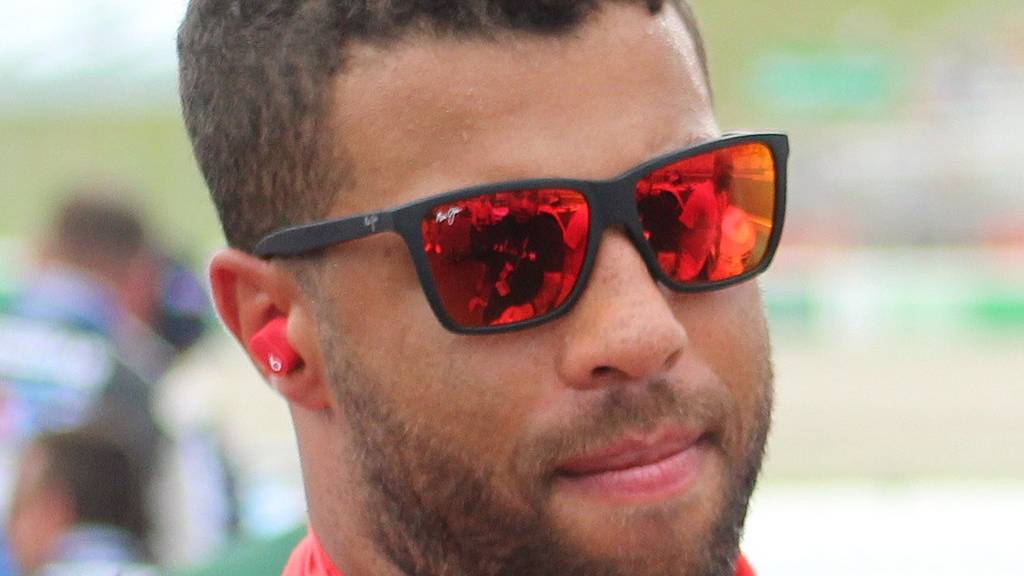ESPN’s E60 documentary “Fistful of Steel – The Rise of Bubba Wallace,” which debuted Tuesday night, highlights how an event in Knoxville changed the NASCAR driver’s life and the life of his family — forever.
(The documentary will re-airs on ESPNNews on Wednesday at 8 p.m.)
Wallace, the only Black driver, in the top level Cup Series of NASCAR, is only the second Black driver to ever win a race on NASCAR’s top-level circuit.
Wallace, his mother Desiree, and his sister Brittany talk in the ESPN documentary about the impact of the death of his cousin, Sean Gillispie.
Sean Gillispie was shot at the Weigel’s on Summit Hill Drive by a Knoxville Police officer on May 18, 2003.
Wallace was 9 when 19-year-old Sean Gillispie was shot in the chest while sitting in a car by a police officer. The officer was trying to clear a crowd that had gathered at the convenience store after bars closed at 3 a.m. on a Sunday morning.
Although coming years before the “Black Lives Matter” was a movement, the shooting of the Black teen was controversial at the time with disputed events and remains so.
The Knoxville NAACP chapter immediately for a review and a vigil was held just days after the 3:21 a.m. shooting at the City County Building.
Eleven years later, the site of Gillispie’s death was chosen for a vigil to protest the death of another Black man, Michael Brown in Missouri.
The officer who shot Gillispie with his .40-caliber handgun was cleared of wrongdoing by then District Attorney General Randy Nichols after a two-month review that followed a months-long investigation by the Knoxville Police Department that also found no criminal wrongdoing by the officer.
“It is clear there was a weapon in the backseat of this automobile,” Nichols was quoted in an Sept. 10, 2003 article in the News Sentinel by reporter Don Jacobs. “Was he trying to move it or kick it under the floorboard? We’ll never know. But I don’t think he ever saw Keck.”
The police officer, Jason Keck, testified in a wrongful death civil lawsuit brought by Gillispie’s mother that Gillispie reached for the gun, although another witness and his mother contend he was reaching for his cell phone.
Wallace’s mother Desiree, a University of Tennessee graduate who participated in track and field, says in the documentary Sean Gillispie was found with a bloody cell phone not a gun.
Desiree Wallace says in the documentary that her nephew was shot “”because Sean at this time was reaching in his pocket to get his cell phone to call my sister his mom.”
She was quoted during the civil trial as saying: “We’re hurting all over…to hear Keck say the words that he meant to shoot him, I think it just brought up a lot of old memories that have been instilled within us. We’re just trying to get through it.”
In the civil suit, Knox County Judge Dale Workman ruled the officer’s testimony was unequivocal and undisputed: It was a gun and not a cell phone in Gillispie’s hand and the officer’s use of deadly force was justified.
The Tennessee Court of Appeals agreed in 2006, ruling in an opinion written by Judge Sharon Lee: “Ms. Gillispie’s argument is founded on the assertion that officer Keck acted based upon assumptions he formed as a result of information communicated by officer Ogle, However, the record does not indicate that officer Keck fired his weapon because he assumed that Mr. Gillispie had a gun in his hands, but rather because he actually saw the gun in Mr. Gillispie’s hands and saw Mr. Gillispie pointing the gun in his direction.”
The family sees the moments before Gillispie’s death much differently and views his death as part of the thread that includes high profile deaths of Black men, including George Floyd and Ahmaud Arbery.
“Whenever a Black person is murdered by a white officer, it hits home, we know what the families are going through,” Desiree Wallace says in the documentary.
Bubba Wallace says in the documentary he will never forget the name of Jason Keck, the Knoxville Police officer who shot his cousin.
